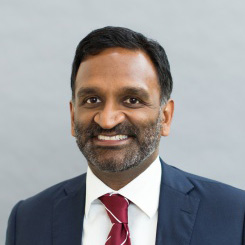Some members of the Acton team were in Krakow, Poland, last week for the third conference in our series on Poverty, Entrepreneurship and Integral Development. This conference, which took place on May 19th, was on the topic of Building a Commercial Society: Culture & the Transition to Wealth, and was co-sponsored with the John Paul II Catholic University of Lublin, the Civil Development Forum, and the Polish American Foundation for Economic Research and Education.
With a massive debt crisis threatening Greece along with other euro-zone economies if not all of Europe, our conference speakers showed how the growth of the welfare state and the appetite for “free” (i.e. government-provided, taxpayer-funded) programs and entitlements have created all sorts of perverse economic, moral and cultural incentives and resulting maladies.
With a wide and impressive array of data, former Polish minister of finance Leszek Balcerowicz explained how the welfare state/entitlement mentality weakens incentives to work and save, and fundamentally alters relations within institutions such as the family, while also increasing and entrenching inequality and social transfer payments. A less dynamic, more resentful society with a few rich, politically-connected oligarchs and many frustrated entrepreneurs follows in much of the post-communist world.
Former Estonian prime minister Mart Laar related how Pope John Paul II’s moral culture of freedom did not and does not yet exist in post-communist countries, with negative consequences for the environment, the economy and the human soul. Estonia has succeeded in cutting government spending by 20 percent, has ignored the advice of the International Monetary Fund to raise taxes, and did not borrow money to finance the welfare state, which Laar called unsustainable and incapable of providing true welfare.
Dominican priest Fr. Maciej Zięba reminded us that the free economy includes more than private property and trade; it needs certain cultural and moral presuppositions about work, human dignity and equality, and decentralized social structures such as parishes, towns and businesses. Pope John Paul II’s encyclical Centesimus Annus was not “hyper-moralistic” but realistic in its reading of the free economy and urged us to do well and do good together.
In the afternoon session, Prof. Jan Kłos addressed the creative tensions of man’s relationship to nature and how it can be turned to our mutual benefit, while entrepreneur Andrzej Baranski spoke of the history of his family business in Krakow and the myth of the “human face” of socialism. Writer and journalist John O’Sullivan noted that Polish culture saved the nation during many trials and sufferings, and could save Europe again by recalling the modest, realistic yet vigorous Christian virtues Polish culture has long instilled in its people.
The conference concluded with the presentation of the 2010 Novak Award to the Lithuanian priest Fr. Kęstutis Kėvalas followed by his Calihan lecture on “The Market Economy in Benedict XVI’s Caritas in Veritate”. Fr. Kėvalas explained how the logic and spirit of giving need to penetrate the market economy, and indicated that Benedict may be developing a “theology of the market” akin to Pope John Paul II’s famed theology of the body. This theology would help shift the economic debate beyond aid and the culture of dependency on the welfare state towards one based on a fuller understanding of human nature.

